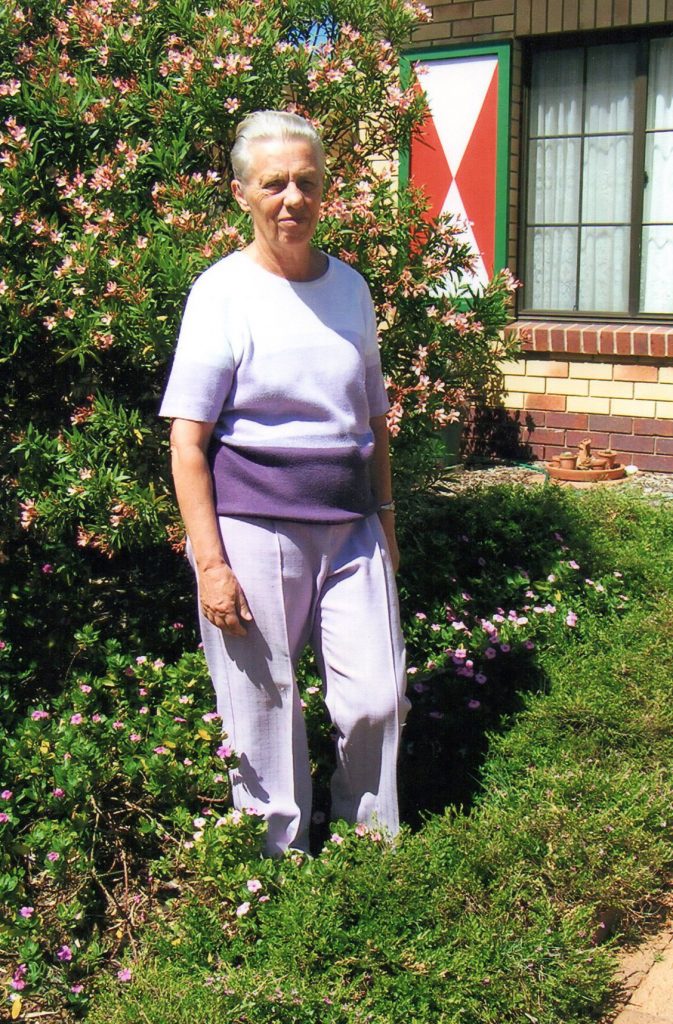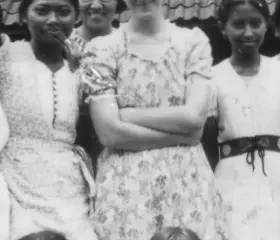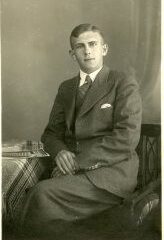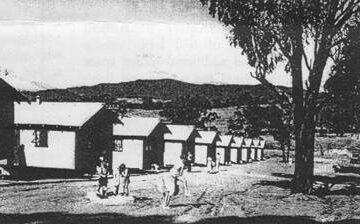
After having interviewed two men who live at my retirement village, I now interviewed a migrant woman. Our village actually has more female than male residents, so it’s about time.
Hanny came to Australia in 1950, when she was 10 years young. She was born in Bussum, where she grew up till age 8. At that time her father, who had a business as electrical and technical installer, was sent to New Guinea by the Dutch government, to help clear up the technical equipment left by the Americans during their liberation of the Pacific. He also worked on fixing the electrical and telephone connections on the island.
In 1949 the family was transferred to Tandjong Priok, on Java, just in time to be caught up in the transfer of Sovereignty to Indonesia. The resulting money devaluation was a major financial set back to many families, including Hanny’s.
In May 1950, the VanderMark family returned to Holland which now was rather cold to them. The housing shortage in Holland was now even worse than before, with the upheaval of decolonization bringing in more people, but not necessarily creating more houses, and the family were unable to find accommodation. They temporarily lived with the grandparents, but their residence was too small for this to become permanent.
It was decided to migrate to Australia, it’s distance from cold war USSR also playing a role in this decision. In January 1951 the VanderMark family consisting of Hanny, her younger brother William (4), sister Anja (6), mum Wilhelmina and dad Jo, embarked on the ship ‘Maloja’ of the P&O line, and a few months later arrived in Sydney. This was Hanny’s third trip through the Suez Canal in three years (twice on the Sibajak from and to Indonesia) and she was given a tapestry with a camel on it, which she still has.
The family were sent to the Bathurst migrant camp, and – familiar to many migrants – Hanny’s dad found out that the qualifications that the Australian Consul in Holland said were excellent, were not recognized here. Finding a lesser qualified job in Sydney was possible, but finding housing was not. All the landlords refused to allow children in their rentals.
Casting about for housing, Hanny’s dad found a caravanpark in Devonport had no child restrictions and was affordable. He also managed to find work in the area. However, after half a year the price of the caravan would multiply tenfold as summer and thus tourist season was coming up. So Jo did what many Australians do, he built his own little house. This enabled Hanny and her siblings to continue schooling for four years in Devonport. Things were not always pleasant as the kids were continuously called names in school and had stones thrown at them. Migrants were not very welcome in the Tasmania of the fifties.
About 1955, the job situation in Tasmania deteriorated and Jo lost his job. Co-workers suggested he go look in Brisbane and indeed, he found a job there. He built another house in Brisbane and the family followed him. Hanny and siblings continued their schooling in Brisbane, having to adjust to a new system again.
After two years of High School in Brisbane Hanny learned typing and shorthand and became a secretary. Her first job was working for an accountant, but she got seriously ill and had to have surgery. She was back at work for a few years when, in 1967 she decided to travel to Holland and make it a ‘working vacation’ around Europe. She even visited East European countries like Czechoslovakia. In between her visits to places like Prague and Vienna, she worked in Holland via an “Uitzendbureau” (temp agency), which was popular in the sixties.
After two years of this traveling life Hanny returned to Brisbane, and got a permanent job as a secretary with the Princess Alexandra Hospital and later the Mater Hospital. Hanny had gotten the travel bug and used her vacations for travel to places such as Canada, Alaska and Russia (St Petersburgh), and visiting her sister who had married and moved back to Holland. She also went on cruises.
Meanwhile, Hanny’s parents were growing old. Hanny heard at the Qld Dutch Club about plans to set up a Dutch retirement village. Hanny attended some of the meetings about the concept, and although a bit skeptical, she did buy an early debenture and found that community support was strong. In 1990 the Prins Willem Alexander Village (PWA) took in its first residents.
By 1995 Hanny was told of a suitable house that was available in PWA, and she and her now very elderly and frail parents moved in. Hanny immediately joined the Board of Management and served for six years on that body. She also became a Justice of the Peace, principally working within the village.
In 2001 both her parents died, and Hanny moved into a somewhat smaller unit. She was now fully part of the community and followed her Board membership with 18 years in the position of secretary of the Residents Committee.
In the 1990s and the first decade of the 2000s PWA offered Open Days and Queens Birthday celebrations that attracted many people that didn’t live in the village, and not just the Dutch. PWA residents organized a traditional second-hand sale of a large variety of items, including books. As an avid reader, Hanny always handled the Book stall, which offered Dutch and other language books. Other stalls sold ‘poffertjes’, ‘oliebollen’, Dutch cheese, and other goodies. It was always a great fest.
Unfortunately, a combination of circumstances, such as organisers becoming old, and the event of a pandemic, have ended these fests, but Hanny still loves living in the village with its little red and green houses that provide a Dutch atmosphere.
I asked Hanny what she thought about her migration in her early years in Australia and she said she was not happy because she had lost childhood friends, contact with her grandparents was only by letter, and gaining acceptance in the community in Tasmania was not easy. She had not enjoyed the pressure to assimilate.
Looking back now, Hanny says that life has gotten better, the arrival of many more migrants on Australia’s shores has removed the mono-culture pressure of the fifties and sixties. Australia has become more diverse and is the better for it. She still feels that she has a leg in both cultures, the Dutch one and the Australian one, and she loves reading in either language. Migrant children should be taught their parents’ language to help them understand their parents’ culture, and be able to assist if an elderly parent loses their use of English. You can get the Dutch out of Holland, but you cannot get Holland out of the Dutch.!
Marianne Pietersen (May 2021)


